Want to know Best Shares To Buy For Beginners? Well you have landed on the right article
How long ago was the first time you received Rs. 1,000 as a birthday gift or pocket money? Do you remember what you did with the first Rs. 1,000?
In all probability, you spent it on a new cricket bat, a new set of toys or food. It wasn't until a 13 year-old boy in Omaha, USA, who was about 13,200 kms away, that a US$ 88,2 billion empire was built with a thousand.
Warren Buffett understood the significance of beginning early. He went on to become one of the world's richest men.
You once again proved that you are an individual who understands the importance of strong beginnings, by the fact that you searched for the best stocks to buy for beginners.
As an acknowledgement of your realisation, today we will offer you some suggestions on the best stocks for beginners. But first, let me share with you an interesting fact.
Would you believe that 95% of all new investors who invest in the stock market lose money within the first ninety days?
It is heartbreaking to find out the cause of this failure, but we have determined the reason for it. However, we will discuss that in a later article.
Let's take a look at the top stocks for beginners in our list of the top stocks to buy.
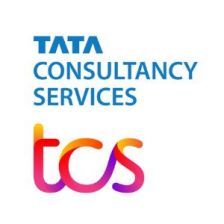
Tata Consultancy Services (TCS)
Overall Rating: 4/5
Tata Consultancy Services is an inseparable part of Tata Group, a conglomerate in India. Jamshedji Tata founded it.

HDFC Bank Limited
Overall Rating: 3/5
The Housing Development Financial Corporation Limited promotes HDFC Bank. IT still holds 19.32% of the shareholding in the bank.
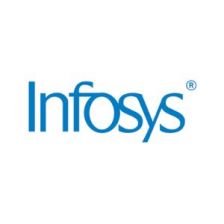
Infosys
Overall Rating: 5/5
Infosys is the second-largest IT company in India, following TCS. It was founded in Pune,
and the promoters still hold 13.1% of the shareholding in the business.
Best Shares To Buy For Beginners (Updated 2022)
1. RIL
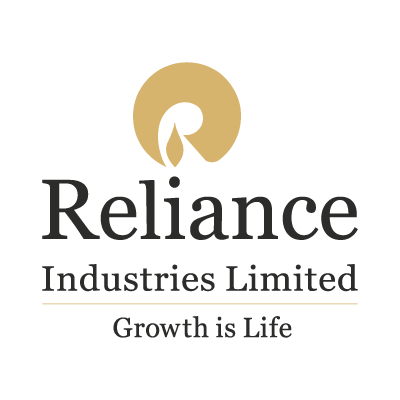
With a market capitalization of Rs 1,751,715.85 Crore, Reliance Industries Ltd., incorporated in 1973, operates as a Diversified company.
Oil & Gas, Other Services, Retailing, and Financial Services are among Reliance Industries Ltd.'s key Products/Revenue Segments for the year ending 31-Mar-2021.
Key facts
2. HUL
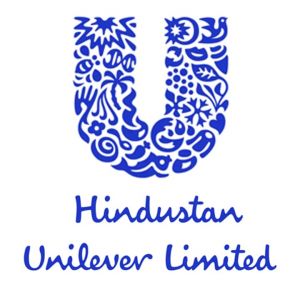
Incorporated in 1933, Hindustan Unilever Ltd. is a large cap FMCG company (with a market capitalization of Rs 536,352.95 Crore).
Personal Care & Other Operating Revenue are Hindustan Unilever Ltd.'s key revenue streams for the year ending 31-Mar-2021.
As reported by the company for the quarter ended 31-03-2022, a Consolidated Total Income of Rs 13,846.00 Crore was earned by the company.
There was an increase of 2.57 % when compared with the previous quarter's total income of Rs 13,499.00 Crore.
Moreover, revenue has increased by 10.40% since the same quarter last year. A net profit of Rs 2,307.00 Crore has been reported by the company in the last quarter.
Key Facts
3. Infosys ltd

As an enterprise software company, Infosys Ltd. was established in 1981. It has a market capitalization of Rs 596,410.37 crore and is a large cap company.
Software Development Charges and Software Products comprise Infosys Ltd. key products/revenue segments for the fiscal year ending 31-Mar-2021.
A record amount of Rs 32,913.00 crore was reported by the company for the quarter ended 31-03-2022
An increase of 1.65 % over the last quarter's total income of Rs 32,379.00 crore and an increase of 22.55 % over last year's same quarter income of Rs 26,856.00 crore. In the most recent quarter, the company reported a net profit after tax of Rs 5,695.00 Crore.
Key facts
4. Bajaj finance ltd
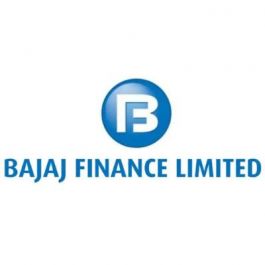
As of the end of 2016, Bajaj Finance Ltd stands at a market capitalization of Rs 349,532,46 crore, making it a large cap company (in the NBFC sector).
In addition to income from fees and commissions, earning from share sales, and operating revenue, Bajaj Finance also earns revenue from service charges and other revenue streams.
A Consolidated Total Income of Rs 8,630.28 Crore was reported by the company for the quarter ended 31-03-2022
An increase of 1.12 % from last quarter's earnings of Rs 8,535.06 Crore and an increase of 25.90 % from the same period last year. A profit of Rs 2,419.51 Crore after tax was generated by the company during the latest quarter.
Features
5. TCS
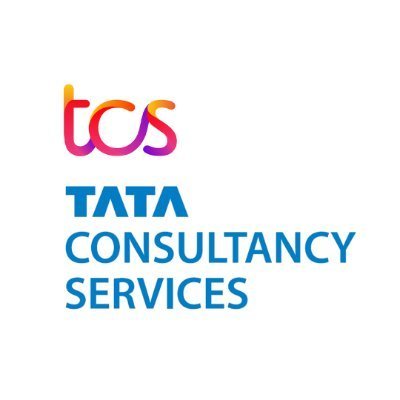
Incorporated in 1995, Tata Consultancy Services Ltd. is one of the largest companies in the IT software sector (having a market capitalization of Rs 1,177,537.62 Crore).
The key revenue streams for Tata Consultancy Services are consulting fees and the sale of equipment and software licences.
The company's consolidated sales in the second quarter totaled 51,572.00 Crore
An increase of 2.96 % over the previous quarter's revenue of 50,090.00 Crore, and 15.54 % over 44,636.00 Crore a year ago. The company's net profit after tax for the most recent quarter was Rs 9,959.00 Crore.
Key facts
6. ITC
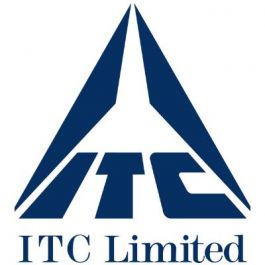
Since its establishment in 1910, ITC Limited has been a large-cap company (having a market capitalization of Rs 333,775.39 crores) that operates in the tobacco industry.
Tobacco Unmanufactured, Service (Hotel), Printed Materials, Other Operating Revenues of ITC Ltd.
During the year ending 31-Mar-2021, the key products and revenue segments of the company are Packaged Food Item, Agricultural Products, Paper & Paper Boards and Others.
It has been reported that the company has posted a Consolidated Total Income of Rs 18,252.64 Crore for the quarter ended 31-03-2022, which is down 2.85% from the quarter had previously ended with a Total Income of Rs 18,787.72 Crore and up 22.32 % from the previous quarter had ended with a Total Income of Rs 14,921.76 Crore.
A profit after tax of Rs 4,259.68 Crore was reported by the company in the quarter ended March 31, 2018.
Features
7. Maruti Suzuki
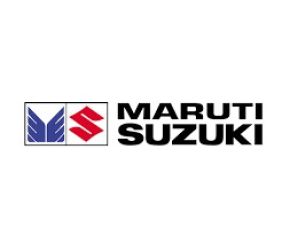
The company was established in 1981 and has a market capitalization of Rs 235,229.74 Crores.
Passenger Cars and Light Duty Utility Vehicles, Mould and Dies, Other Operating Revenue, Scrap, Rental Income,
And Other Operating Revenue are among the key Products and Revenue Segments of Suzuki India Ltd.
Consolidated total income for this quarter was Rs 27,191.90 crore, an increase of 15.31 % over the previous quarter's revenue of Rs 23581.20 crore.
Additionally, the same quarter's revenue grew 12.72 % over last year's revenue of Rs 24,124.20 crore. According to the company's pre-tax net profit report for the last quarter, it generated Rs 1,804.20 crore in net profit.
Key facts
8. HDFC

With a market value of Rs 754,942.22 crore, HDFC Bank Ltd. was incorporated in the year 1994.
As of 31-Mar-2020, HDFC Bank Ltd's key products and revenue segments are interest and discount on advances and bills, revenue from investments, interest on balances with RBI, and other inter-bank funds and interest.
Gross non-performing assets (Gross NPAs) represented .00% of total assets for the quarter ending 31-03-2022.
Key facts
9. JUBL Food

A Large Cap company (with a market capitalization of Rs 6,349.03 Crore), Jubilant Foodworks Ltd. was incorporated in the year 1995 and operates in the Tourism & Hospitality sector.
Pizza, Other, Beverages, Desserts, Dips, Other Operating Revenue and Other (Traded) are the key product/revenue segments for Jubilant Foodworks Ltd.
The company reported a Consolidated Total Income of Rs 1,221.88 Crore during the quarter ended 31-12-2021,
An increase of 8.55 % over the previous quarter's total income of Rs 1,125.64 Crore, and an increase of 12.60 % over last year's same quarter total income of Rs 1,085.15 Crore. In the latest quarter, the company made a net profit of Rs 135.66 Crore after tax.
Key facts
10. Crisil
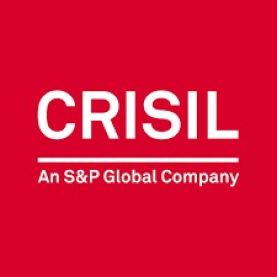
A mid-cap company, Crisil Ltd. was incorporated as a company in 1987 - it has a market capitalization of about Rs 26,376.13 Crore. It operates in the Financial Services sector.
Crisil Ltd. key products and revenue segments for the year ending 31 December 2021 include other services and revenues from ratings services.
It has been reported that the company has reported a Consolidated Total Income of Rs 615.05 Crores for the quarter ended 31-03-2022.
A reduction of 14.51 % from last quarter's total income of Rs 719.45 Crores and an increase of 20.92 % from last year's total income of Rs 508.65 Crores. During the latest quarter, 121.62 Crore has been reported as the company's net profit after tax.
Key facts
What are stocks?
Stocks (also known as shares) are securities that represent the ownership of a part of the stock of a company. This means that the owner of the stock is entitled to a proportionally larger share of the corporation's profits and assets, depending on the degree to which they own the shares.
The shares in the corporation are known as shares. Individual investors put their trust in the stock exchange to buy and sell stocks (although there are also private deals that can be made) and this is where the majority of their portfolios are built.
As an investor, you need to be protected from fraudulent practices through government regulations that govern these transactions.
In the recent past, there has been an outperformance over the long run of most other investments. Investors have access to these investments through most online stock brokers.
How to select the right stock?
Mutual funds or stock market investments are frequently referenced as investment risks by people when discussing their plans for investment. Investors are encouraged to take precautions.
If you are unaware of the dangers, how can you navigate the stock market? To help novice investors navigate the complex world of stock market investing, please review the checklist below.
How do you describe yourself?:First, let's determine if you are a speculator or an investor before deciding on the best stocks for beginners.
Investors participate in the market over the long term, while speculators take a short-term approach. Be clear about who you are. Understanding yourself is the first step to managing your expectations and risks.What is my investment horizon? Beginning investors need to take this important step in choosing stocks. Large-cap funds are best suited to those with a time horizon of less than 5 years. The best stocks for long-term wealth creation are midcap and small-cap stocks if your time horizon is at least 10 years.
Consider your risk profile. An investment in the stock market is less secure than opening a bank account. This is why it is extremely important to accept your risk appetite and invest accordingly.
Keep your investments in large cap stocks only if you have a low risk preference. Keep away from mid- and small-cap stocks if you don't feel comfortable taking on the risk.Spread your investments. Diversification of investments has been criticised by Buffett, but it has always been a good practice. You can manage your portfolio risk more effectively if you allocate your assets between equity, debt, and gold.
Avoid following the crowd. To follow the crowd is to commit the greatest sin. If all of your investment gurus or neighbours recommend investing in stock, then it is considered a herd mentality.
A decision to invest in stocks should not be influenced by emotion. Hard facts should be utilised rather than TV nonsense.
Why choosing the right stock is important?
This article offers some useful guidance, but it isn't enough to determine whether a stock is a good addition to your portfolio. Here are some questions to help you make the right decision.
When deciding your asset allocation, did you consider the enterprise, industry, and sector of the company? As such, even though it's a high-risk/high-reward investment, it makes sense to make a larger number of purchases in the 20 years before retirement, based on your overall portfolio allocation, than five years before you retire.
You may consider looking for low-risk stocks when you're thinking of retiring, as you may want to think about whether your money would be better invested in lower-risk assets such as short-term bonds, depending on what your asset allocation is at this stage of your life.
If you disregard your personal risk tolerance, is a stock's risk profile within your time horizon? What can make you lose sleep if the price of a stock suddenly drops by 30 percent?
If you have invested in stocks within the parameters of a suitable asset allocation, then you should not be concerned about losses in stocks.
Gains in your equity portfolio should balance losses. If you consider a steep dive as likely to cause discomfort in the stock you are considering, you may be contemplating a larger investment than you can handle.
It is extremely difficult, if not impossible, to find winning stocks with a high degree of consistency. It is for this reason, and the act of diversifying our investments, that we have portfolios.
Equity portfolio management, therefore, is the development and control of this process. As important as selection and review of data in selecting stocks to be invested in are at the heart of this management strategy.
Tips for new investors
Identify Your Objectives
You can reap the benefits of investing in stocks and shares by setting long-term goals. The importance of setting long-term goals will help you better understand the importance of saving,
Regardless of whether you want to save for your retirement or to help pay for your child's education or buy a house.
Risk Level
Investment options must be carefully examined for the level of risk associated with them before money is invested. A comprehensive comparison of the various schemes is the best way to identify the risks associated with different products and determine the best choice.
Also Read - Best books on stock market , Best Large Cap Stocks & Best Broker For Intraday
Conclusion
An equity stock represents a fractional share of ownership in a company. There is a difference between a bond and a bond like this, which is more like a loan given to a company by creditors in exchange for periodic payments.
Companies issue stock in order to raise capital from investors for the purpose of financing new business developments and expanding existing operations. The two types of stock that are issued by companies are common and preferred shares.
A stockholder may have certain rights depending on the type of stock they hold, which will either directly or indirectly affect their rights. A stockholder can either be a common or preferred stockholder.
It's been reported that common stockholders have a vote at shareholder meetings and are entitled to dividends from the company's profitability, whereas preferred stockholders receive dividends and have priority over the common stockholders in case of bankruptcy.
I hope you liked our article on Best Shares To Buy For Beginners, if you have any comments or suggestions do share them in the comments below.
frequently asked question
Q. Which share is best to buy now?
Axis Bank share is the best share to purchase currently in the volatile market due to their record profit.
Q. Which share is best to buy at the lowest price?
Standard Inds.with gross sales of 11195.80 Rs. is the best share to purchase at a lower profit.
Q. How many shares should a beginner buy?
It is important to note that depending on the type of investment strategy, the number of stocks in most investors' portfolios should be between 15 and 25.

